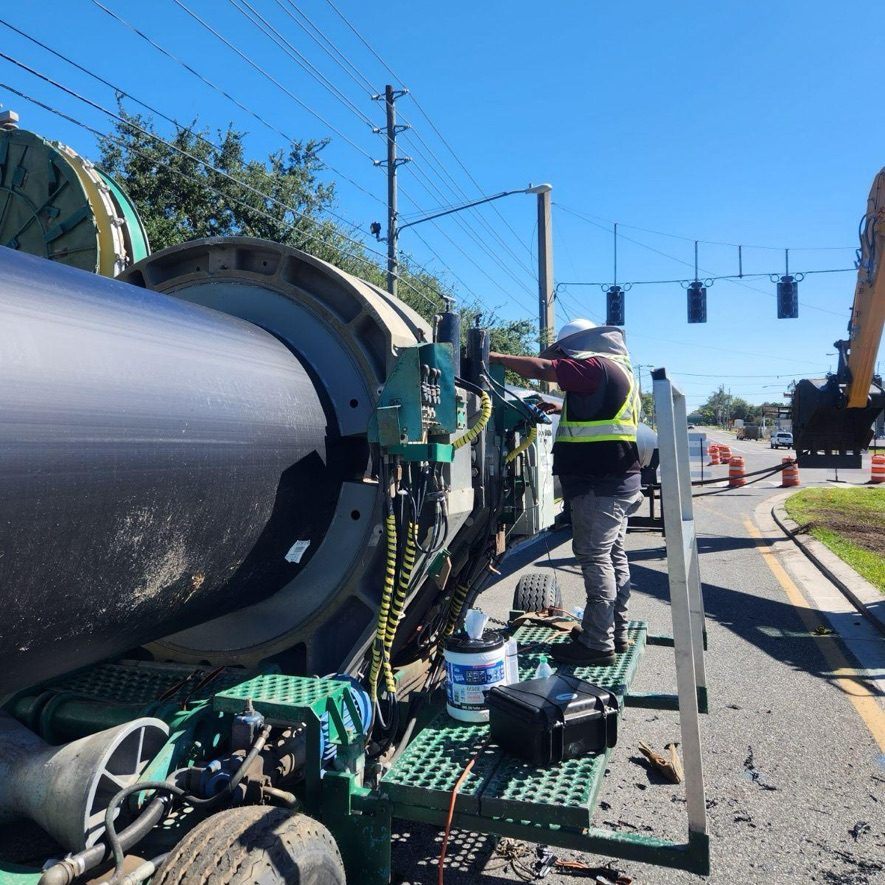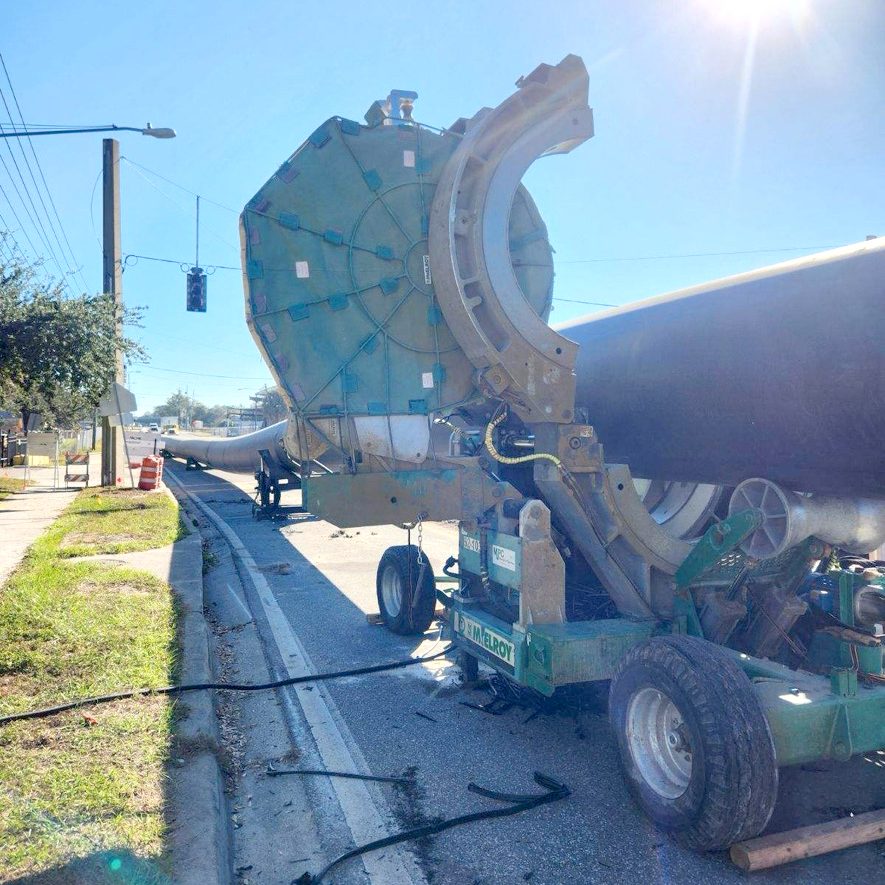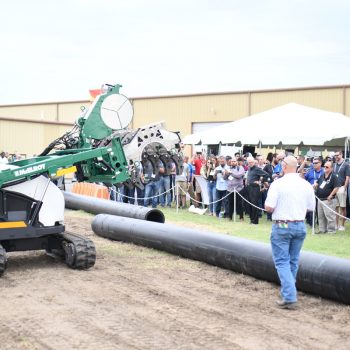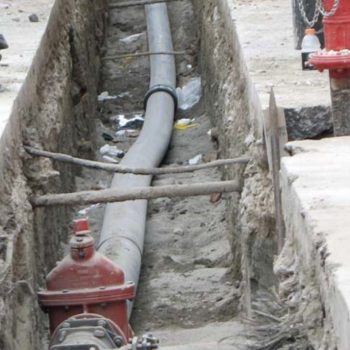In one of the top vacation destinations in the United States, a large-diameter pipeline is keeping up the momentum for a polyethylene revolution in Central Florida.

Orlando, Florida, is the third-most visited city in the U.S., after New York City and Miami. Each year, the city attracts some 2.9 million visitors.
Situated on Orlando’s northwest side is Long Lake, an unincorporated, 119-acre lake managed by Orange County. Historically, the lake has maintained a depth of about 64 feet (19.5 m), fed by the area’s frequent rainfall. Annually, Orlando itself receives about 51.45 inches (1,307 mm) of rainfall a year, most of which occurs between June and September.
To keep the lake levels at acceptable levels, a pump station was installed east of Long Lake in the 1960s. Because Long Lake is a closed basin – meaning it does not feed any other waterways – it’s critical to keep the water level from rising beyond its banks.
Today, that concrete outfall pipe is more than 60 years old, and it’s been logging several leaks. An attempt to renew the host pipe with cured-in-place pipe (CIPP) failed, leading Daniel Negron, Orange County’s chief stormwater management engineer, to take this as an opportunity to try something new.
That’s where Murphy Pipeline – and McElroy machinery – came into the picture.
“We looked at conventional construction, which would have involved trenching and excavating, and then replacing the pipe with standard concrete pipe,” Negron said. “But doing that would have been more expensive and the project would have taken longer.”

Traffic, in particular, was a concern – the stretch of road where the work took place serviced both residential and industrial property.
In fall 2023, Murphy began a project to install about 1,050 feet (320 m) of 42-inch (122 cm) DR 21 HDPE into the existing concrete pipe. Working adjacent to the site, Murphy crews fused 50-foot sticks of HDPE using a MegaMc® 2065.

Williams started working at the site in mid-October 2023. While this is Murphy’s first large-diameter project in Orlando, Williams hopes the job’s success will open a door to future work.
In addition to the MegaMc 2065, operators utilized the DataLogger® 7, McElroy’s ruggedized work tablet, and the Vault™, a cloud-based data storage platform that provides secure storage for all DataLogger data.
“We have a whole fleet of McElroy machinery,” said Murphy Pipeline project manager Marcus Williams. “They’re reliable machines, and we rarely have any issues with them.”
HDPE pipelines are growing in popularity thanks to their trenchless installation options and reputation for delivering a rugged and leak-free line that can last for up to a century. Williams hopes that after this line’s test in mid-March, the Orange County Government – which manages this and other pipelines in the area – will start replacing more of their existing lines with HDPE.
There are many opportunities for more HDPE work, Williams said, but with this outfall set to go live in mid-March, officials with Orange County are waiting to see how the line performs before committing to more jobs. Like many other locations worldwide, this job in Central Florida showcased HDPE as a reliable, efficient, and cost-effective solution to improving infrastructure.
CLICK HERE to learn more about the MegaMc line of machines.

